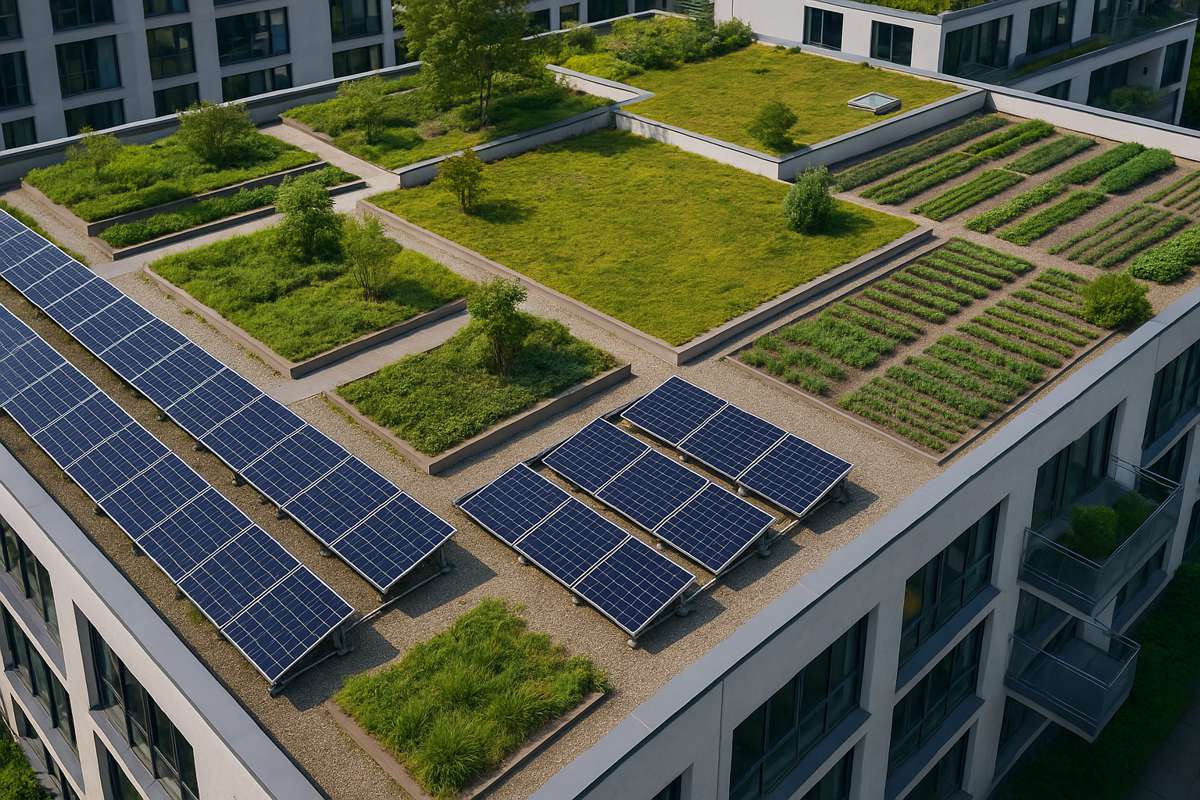- October 7, 2025
- Blog & Newsletters
- Comments : 0
The Green Rupee Revolution: How Sustainable Startups Are Defining Central India’s Future
A quiet but powerful revolution is underway in the heart of India. As the world grapples with climate change and resource scarcity, a new generation of entrepreneurs in Madhya Pradesh is rising to the challenge, not just as environmental stewards, but as savvy business leaders. The shift from a linear ‘take-make-dispose’ model to a circular economy is no longer a niche concept; it’s rapidly becoming a competitive necessity and a strategic economic lever. For startups in Indore, Bhopal, Jabalpur, and Gwalior, this transition represents one of the most significant wealth-creation opportunities of the decade. This isn’t just about saving the planet; it’s about building resilient, profitable, and future-proof businesses that will define Central India’s economic landscape for years to come.

What’s Happening: The National Push Towards a Circular Economy
The momentum is undeniable. India’s commitment to achieving net-zero emissions by 2070 and generating 500 GW of renewable energy by 2030 has created a massive policy tailwind for green ventures. NITI Aayog estimates that circular economy practices could unlock trillions of dollars in economic value nationwide. This national ambition is translating into tangible support. The government has launched a suite of initiatives, including the Green Credit Scheme, which incentivizes companies for adopting environment-friendly technologies, and the Production-Linked Incentive (PLI) schemes that reward scale in green manufacturing. Furthermore, the Department for Promotion of Industry and Internal Trade (DPIIT) recently partnered with the Global Energy Alliance for People and Planet (GEAPP) to catalyze climate-tech entrepreneurship, offering funding and mentorship to early-stage startups. This convergence of policy, consumer demand, and investor interest is creating fertile ground for innovation in sectors from waste management and renewable energy to sustainable agriculture and green logistics.
Why It Matters: The Triple Bottom Line for Central India’s Ecosystem
This green shift has profound implications for every stakeholder in the startup ecosystem. For founders, it opens up new markets and revenue streams. Consumers are increasingly demanding sustainable products, creating opportunities for startups that can offer eco-friendly alternatives in packaging, fashion, and consumer goods. For investors, Environmental, Social, and Governance (ESG) criteria are no longer optional. ESG investing is a rapidly growing trend in India, with investors actively seeking ventures that promise not only financial returns but also positive environmental and social impact. This means startups with a clear sustainability mission have a distinct advantage in attracting capital. For mentors and enablers like TiE Indore, the focus shifts to guiding startups in building robust, circular business models. It’s about embedding sustainability into the core strategy to enhance long-term resilience, reduce operational costs by minimizing waste, and build a brand that resonates with a conscious generation of consumers and employees.

How Startups Can Respond: A Framework for Circular Innovation
For entrepreneurs in Central India, the opportunity lies in applying circular principles to the region’s unique strengths—agriculture, manufacturing, and textiles. The key is to move beyond simple recycling and innovate across the value chain. Startups can build their business models around several core circular economy strategies. Here is a structured framework that local founders can adapt:
| Circular Economy Model | Description | Central India Application (Example) | Key Performance Indicator (KPI) |
|---|---|---|---|
| Resource Recovery | Creating value from waste streams by converting them into new products or energy. | An Indore-based startup processes agricultural waste (stubble, soy husk) into biofuel or biodegradable packaging materials. | Waste Diversion Rate (%) |
| Product Life Extension | Designing products for durability, repair, and refurbishment to keep them in use longer. | A Bhopal-based venture offers repair and upcycling services for electronics or textiles, reducing e-waste and fabric landfill. | Product Lifespan Increase (Years) |
| Sharing Platforms | Increasing the utilization of assets through collaborative consumption (e.g., renting, sharing). | A Gwalior-based platform for sharing agricultural machinery or construction equipment among small businesses and farmers. | Asset Utilization Rate (%) |
| Product as a Service (PaaS) | Offering access to a product’s function rather than selling the product itself, with the manufacturer retaining ownership. | A startup provides ‘cooling-as-a-service’ to small businesses using energy-efficient appliances, with a monthly fee covering maintenance. | Customer Lifetime Value (CLV) |
By adopting these models, startups can create a competitive moat, lower their dependence on volatile raw material prices, and tap into a growing market of eco-conscious customers. This is the kind of innovative thinking we foster through programs at TiE Indore’s mentorship initiatives.
The Local Lens: Green Shoots in Indore and Bhopal
Central India is already showing promising signs of becoming a hub for sustainable innovation. Indore, renowned for its cleanliness, provides a natural ecosystem for waste management startups. The success of companies like EcoPack Industries, which manufactures biodegradable packaging, demonstrates how sustainable practices can lead to global export opportunities. The city’s robust support system, including incubators like AIC-Prestige Inspire Foundation and AIC-SGSITS, provides a critical launchpad for early-stage green-tech ventures. In Bhopal, institutions like the Atal Incubation Centre at Rabindranath Tagore University are fostering innovation, while the city’s focus on smart city infrastructure creates opportunities for startups in sustainable mobility and green buildings. The presence of premier institutions like IIM Indore and IIT Indore further fuels the ecosystem with research, talent, and an entrepreneurial mindset, creating a powerful synergy for growth. The government’s ‘Make in Madhya Pradesh’ initiative, coupled with a focus on sectors like EV manufacturing and food processing, aligns perfectly with the green agenda. As local entrepreneurs say, “Ab samay hai, kuch bada aur accha karne ka!” (Now is the time to do something big and good!).
Takeaways: A TiE Mentoring Perspective
From a mentoring standpoint at TiE, we advise aspiring green entrepreneurs to focus on three core pillars. First, viability over ideology. Your sustainable solution must solve a real-world problem and have a clear path to profitability. A great environmental idea that isn’t a great business will struggle to make a lasting impact. Second, master the metrics. Learn to measure and articulate your impact in quantifiable terms—tons of CO2 reduced, liters of water saved, percentage of waste diverted. This data is crucial for attracting ESG investors and conscious customers. Third, build a collaborative ecosystem. The challenges of sustainability are too large to solve alone. Partner with government agencies, academic institutions like IIT Indore, and industry bodies. Leverage the power of networks like TiE to connect with mentors, investors, and partners who can help you scale. The journey of a thousand miles begins with a single, sustainable step.

Conclusion: Central India’s Green Dawn
The global transition to a sustainable economy is not a distant trend; it is a present-day reality unfolding right here in Central India. The convergence of favorable government policies, increasing investor appetite for ESG-compliant ventures, and a groundswell of entrepreneurial talent has created a perfect storm of opportunity. For the founders and innovators of Indore, Bhopal, and beyond, this is more than just a business opportunity—it is a chance to lead, to build enterprises that are not only profitable but also purposeful. By embracing the principles of the circular economy, our region’s startups can solve critical environmental challenges, create green jobs, and establish Central India as a leader in the global sustainable development narrative. The green rupee revolution is here, and it’s time to invest in a cleaner, more prosperous future for all. Join us at TiE Indore to be a part of this transformative journey.




